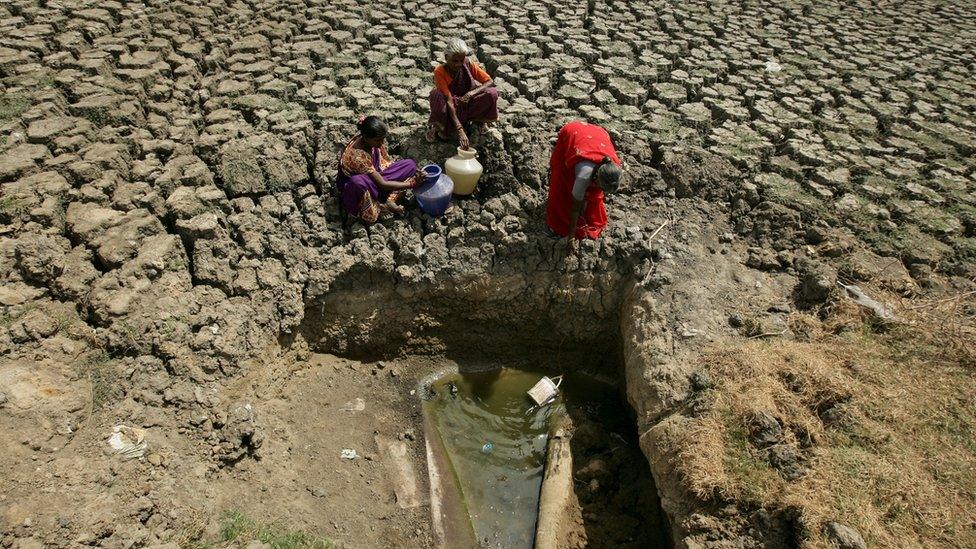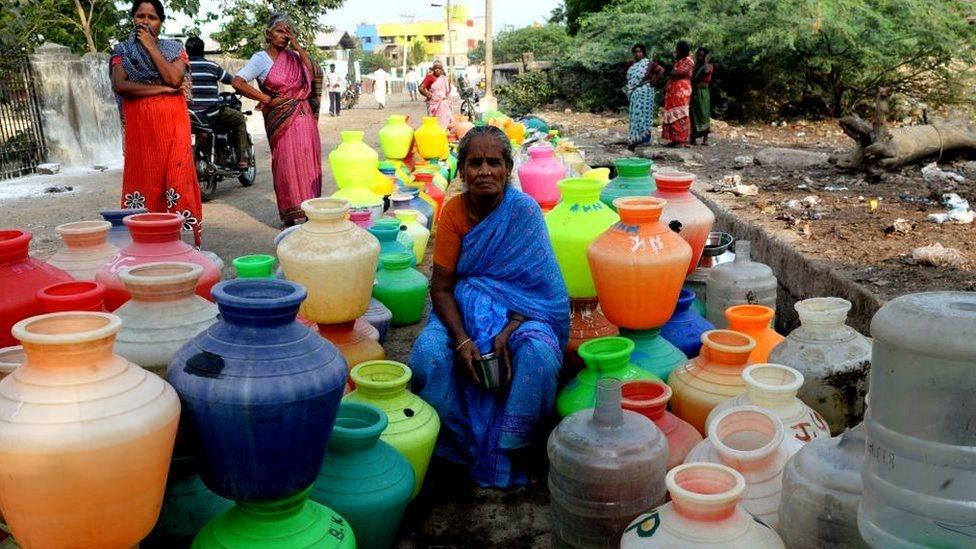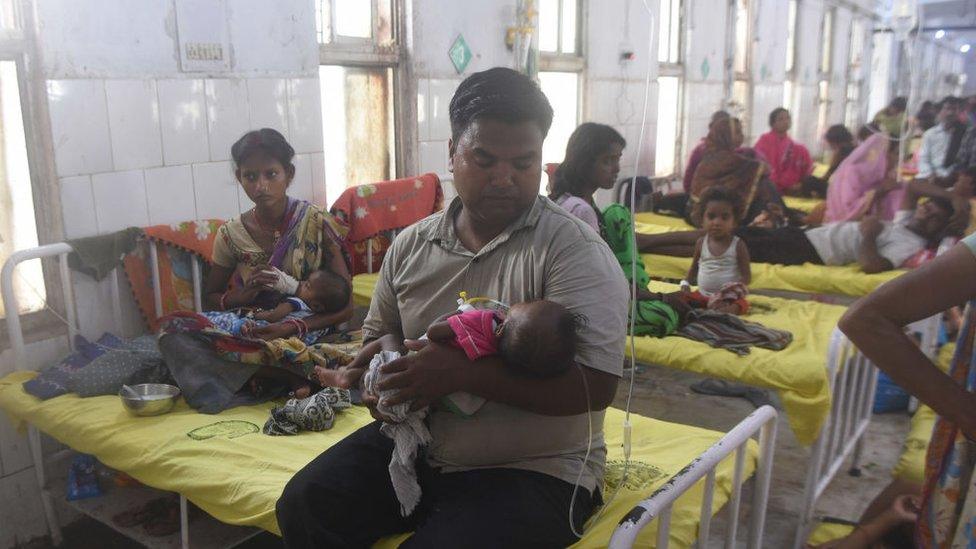Chennai water: How India's sixth biggest city is coping with shortages
- Published

Many residents have been told to work from home in a bid to conserve water
People fighting in queues for water, many unable to take showers, and hotels warning people about water usage.
This is the situation in India's sixth largest city after its four reservoirs ran dry this week.
And while there is a little water still available, it's not clear how long it will last.
As a result, most of Chennai's more than four million-strong population is now relying solely on government tankers to provide their water. Others are paying large sums of money for private companies to supply water to their homes. Even then, it can take up to four days for the tanker to arrive.
In some cases, people have attempted to draw water from wells - but the quality of the groundwater is poor.
Water is scarce in most Indian cities at the best of times and residents don't expect their taps to run round the clock, so they store it.
But this year the monsoon season has been delayed, adding to the city's water problems.
Smaller restaurants have even been forced to close, while some people have been told to work from home in a bid to conserve water in their workplaces. The city's metro system has also stopped using air conditioning at its stations.
Hotels have even started rationing water for their guests.
P Chandrasekhar, a supervisor at Ananda, a small hotel in the city that is warning its guests to be mindful of every drop, said: "It's not just us, all the hotels run the risk of shutting down because there's hardly enough water."
However on Thursday, there were reports of rain in the city. People took to social media to share their delight at seeing rain for the first time in about 190 days, external.
Allow X content?
This article contains content provided by X. We ask for your permission before anything is loaded, as they may be using cookies and other technologies. You may want to read X’s cookie policy, external and privacy policy, external before accepting. To view this content choose ‘accept and continue’.
Zoha, a radio presenter, told the BBC: "The city is facing a lot of weather problems right now. In the past 10 years, this is the longest that the city has gone without rainfall.
"There is no amount of money that can buy water at the moment... there are people who are willing to spend thousands of rupees just to get a few litres of water, but they are not able to get even that.
"The malls are not functioning, public toilets and all of those things are getting affected because of the water crisis. We hope to have some rainfall super soon and get our water back."
Punitha, a mother of two, told NDTV that she waited for hours every two days to get water from a government tanker.
She said she got just seven pots of water on alternate days for her four-member family.

"Our children are not able to go to school and college. We collect water from the Valluvar square tank at 1am or 2am."
Fights have broken out at some public water tanks as people queue to collect water.
City resident Rajasimhan told the BBC: "We are facing one of the worst water shortages in recent years. The water situation has been very bad for the last month. And it will be worse if there is no rain in the coming days. There is no water through the taps.
"We have to depend heavily on water supplied by trucks from Chennai Metro Water or private water suppliers, the latter being too costly but we don't have a choice.
"We store water in buckets and pots. If the water tankers won't turn up, we source water from the common storage tanks kept on the street. It is very time consuming. All the major reservoirs in the city are dry. We are all praying for a good rain to tide over the water crisis."
Aksshay, a food blogger in Chennai, told the BBC: "Living without water is hard. I am facing a lot of problems my side as well. We used to get groundwater and now we have to buy tanker water which costs $50 to $100. For me, it's really expensive.
"When we go to streets and restaurants, they don't have water, they have some contaminated water which will be given for handwash which is not really hygienic. I'm trying to spread awareness to save water and not waste water. I'm trying my best to tell my friends but let's see what happens. "
- Published18 June 2019

- Published18 June 2019
